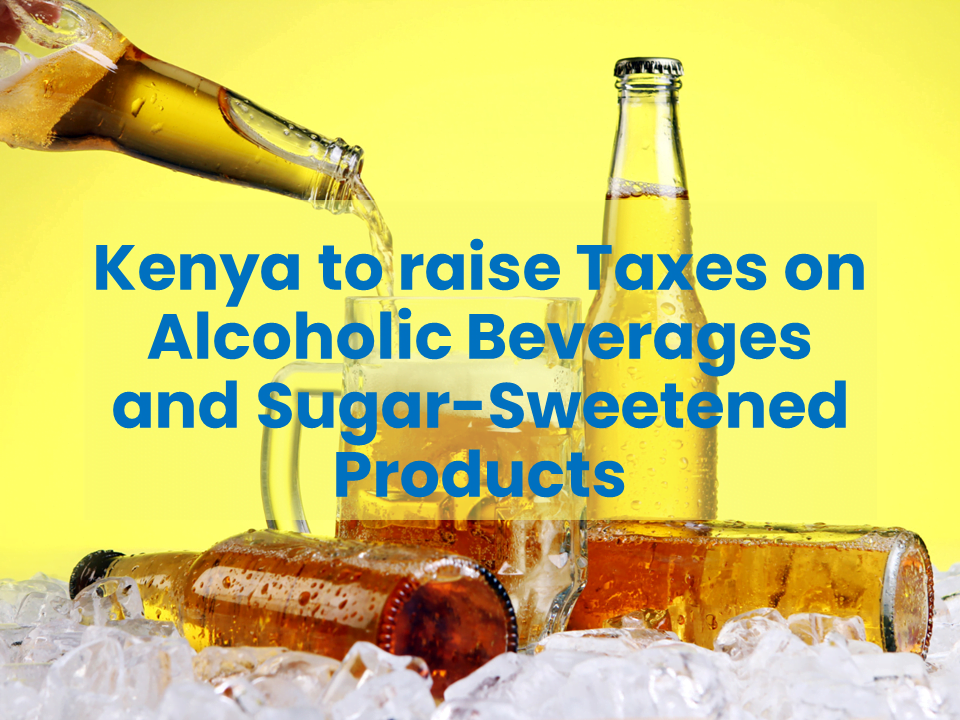Kenya to Increase Taxes on Alcoholic Beverages and Sugar-Sweetened Products

Increased tax on alcohol, sugar-sweetened products, and tobacco are on the horizon in Kenya as we look ahead to 2024. The newly proposed taxes are the government’s proactive measures to promote healthier lifestyles and discourage excessive consumption, aligning with global efforts to combat the rising tide of diet-related non-communicable diseases.
Historically, studies have linked excessive sugar consumption to a host of health issues, including heart disease, type 2 diabetes, and obesity, which is increasingly prevalent in Kenya and across Africa. In line with this concern, the Kenyan government is planning to reevaluate its taxation approach for sugar-sweetened non-alcoholic beverages. The new proposal aims to tax these products based on their sugar content, effectively creating an economic disincentive for their consumption. This move is part of the government’s broader strategy to combat obesity and related non-communicable diseases.
This development follows the earlier introduction of a tax on locally manufactured sugar confectionery, including white chocolate, in July 2023. This tax imposition was also justified as a means to promote healthier living.
Targeting Alcohol Consumption for Public Health Benefits
Alcohol consumption, too, is in the government’s crosshairs due to its association with various health risks, including high blood pressure, heart disease, stroke, liver disease, and digestive problems. The United States Center for Disease Control (CDC) has further stressed the risks by linking alcohol consumption to injuries, such as motor vehicle accidents, falls, drownings, and burns.
Enroll in the Agricultural Health and Medicine Course and earn your certificate
In the upcoming fiscal year, consumers of spirits and other high-alcohol-content products can expect an upward revision in taxes. The Treasury has explicitly stated that this tax hike is intended to discourage their consumption, given the elevated health risks they pose. The adjustment in tax rates will be guided by quantitative analysis to determine the optimal rates for each alcoholic product.
Tobacco Products Also Under Scrutiny
Taxes on cigarettes and tobacco-related products are also set to increase as part of the broader strategy to promote healthier living. This will apply to both filtered and non-filtered cigarettes, as well as other tobacco products. The objective is to harmonize excise duty rates across all tobacco products, ensuring fairness and equal treatment in taxation.
The government’s rationale is clear – the negative health consequences associated with these products necessitate action. Tax rates will be determined based on the extent of these health consequences, as well as recommendations from an ongoing study conducted in collaboration with East African Community partner states.
These changes, outlined in the draft three-year tax revenue strategy beginning in July 2024, will inevitably lead to higher prices for the affected products and will unquestionably have an impact on consumer behaviors, industry dynamics, and, ultimately, the country’s GDP.
READ: Kenya Implements Stringent Measures for Duty-Free Sugar Imports



